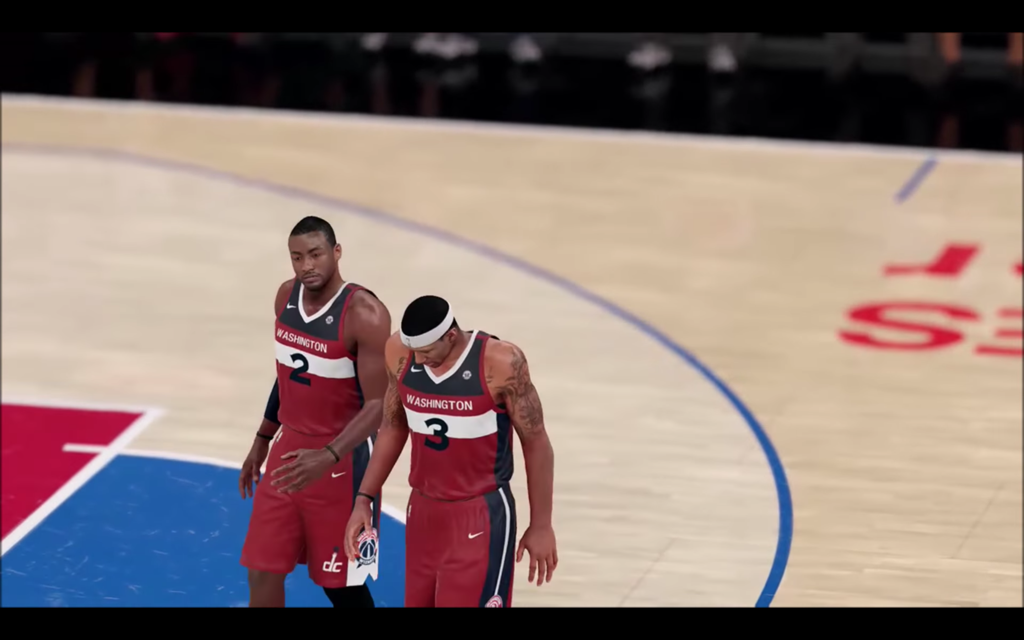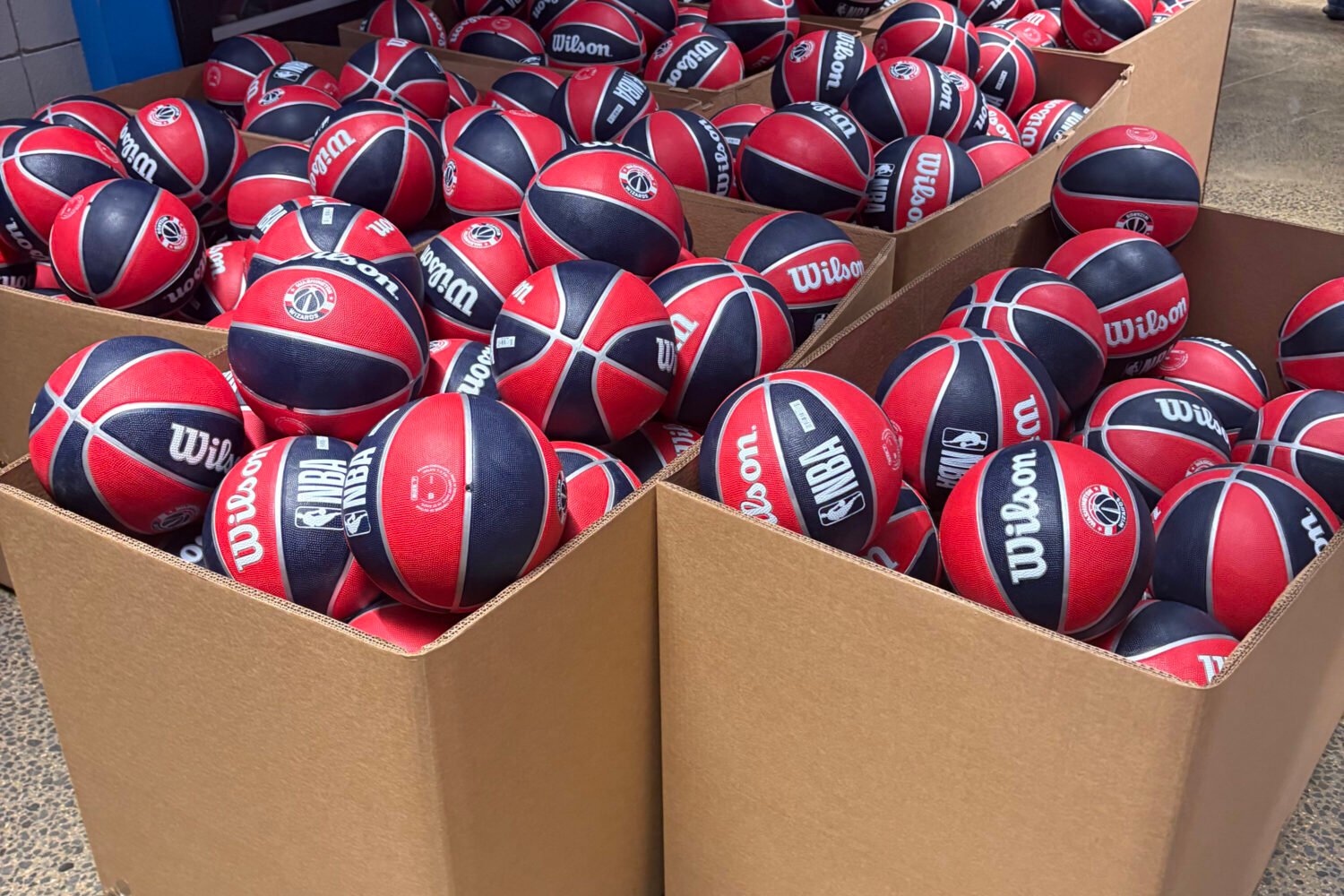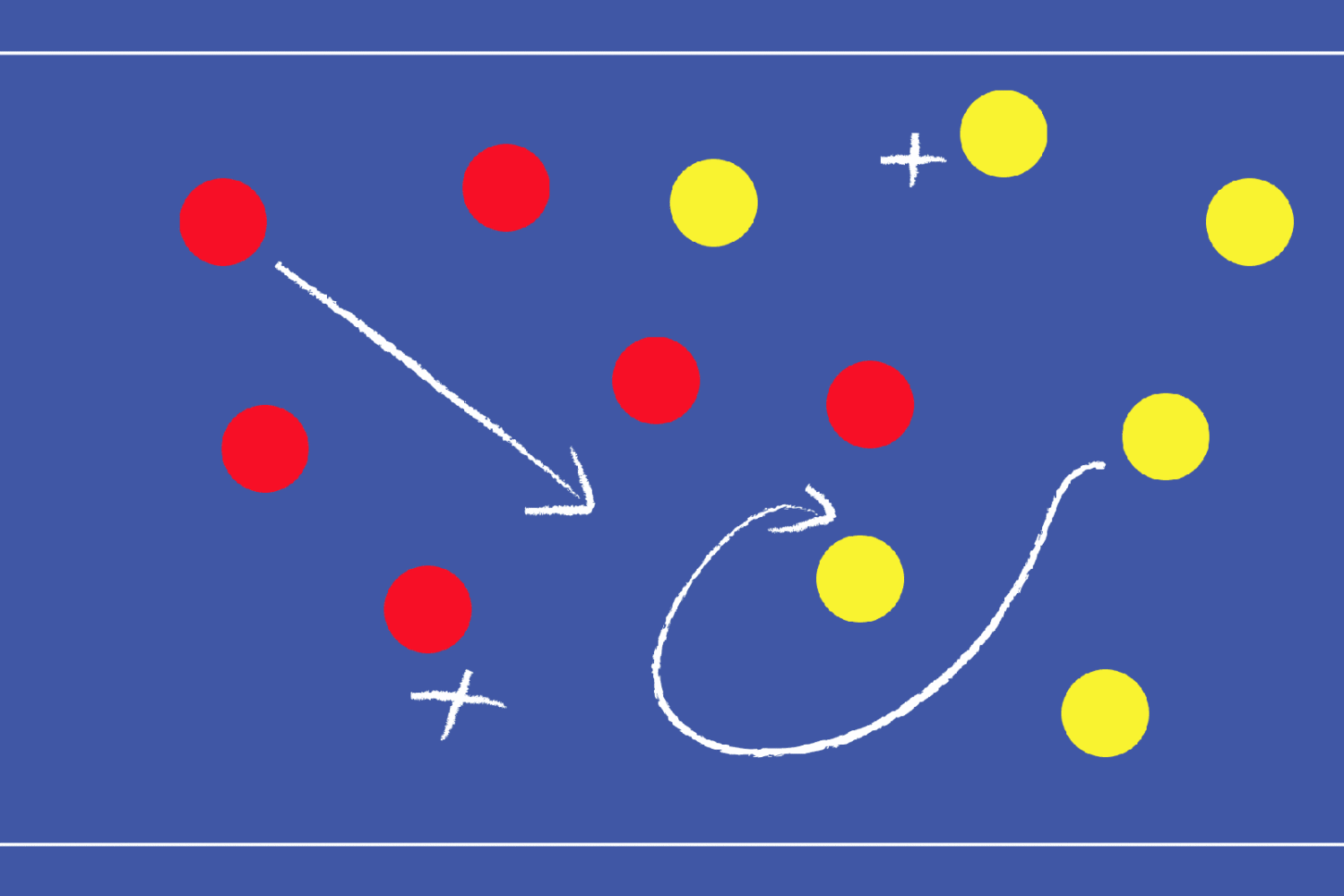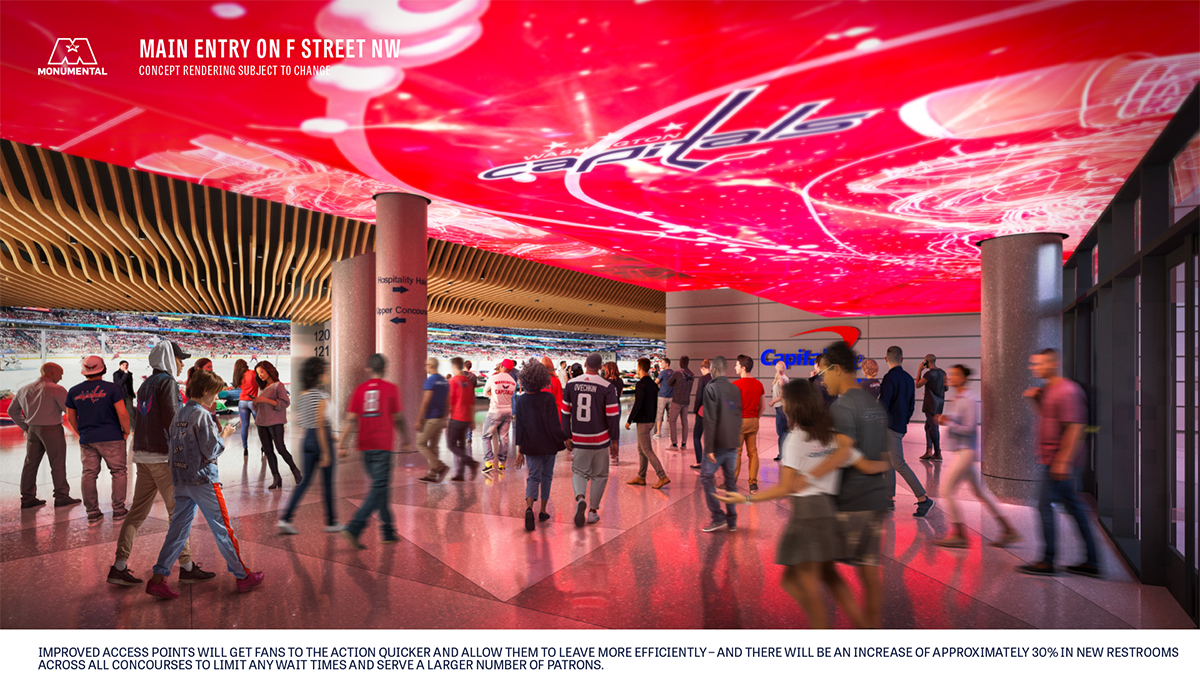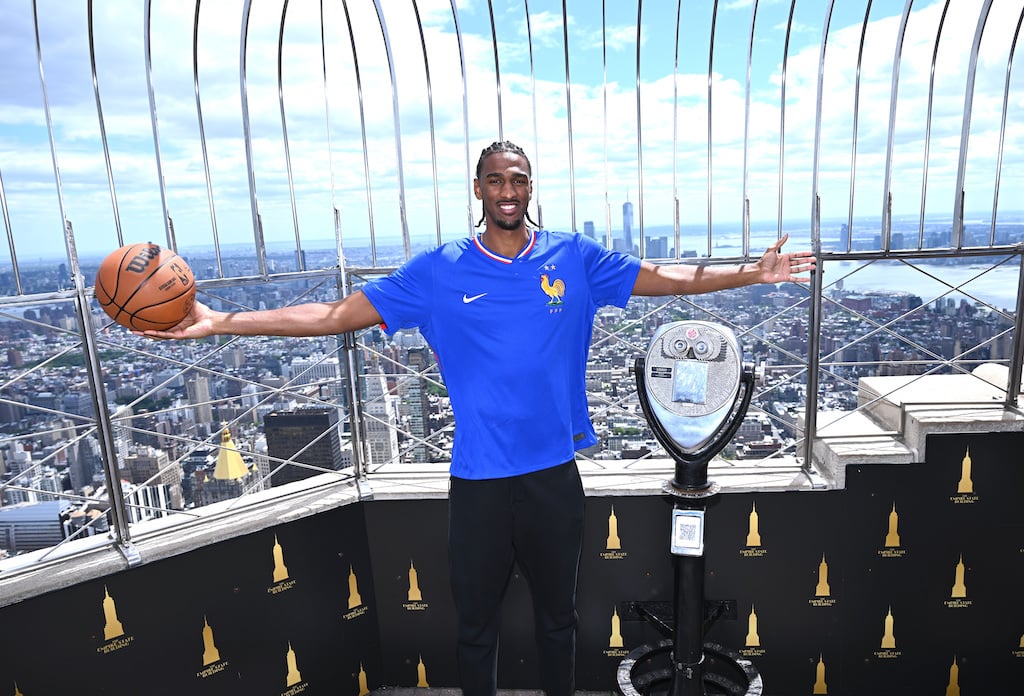A few months from now, the Washington Wizards will draft five new players to represent the franchise. No one on the team’s normal 15-player roster is at risk of losing his position, though; the draftees will only be playing basketball in the digital realm, not the physical world.
The Wizards are one of 17 professional basketball teams participating in the NBA’s upcoming 2K League, in which franchises will field five-person rosters to play the videogame version of the sport. Along with the other 16 teams involved, the Wizards are betting that the NBA’s future lies, in part, in the emergence of competitive videogames, known better as esports. Wizards team executives, videogame publishers, and the NBA’s official in charge of the 2K League assembled Monday at the Capital One Arena to explain how the virtual game will work—and to show off advertising opportunities to potential sponsors.
Esports, long popular in China and northern Europe, are growing audiences in the United States thanks to streaming video services like YouTube and Twitch, which specializes in videogames. Elite players, like traditional athletes, can get signed to teams that face off in public competitions, often with very large audiences and sometimes for eight-figure cash prizes. Most competitive games are strategy-based battle games like League of Legends or first-person shooters like the Call of Duty series, but there’s a growing segment for sports games. Newzoo, a marketing firm that specializes in competitive video-gaming, estimates esports will reach a global—though overwhelmingly male—audience of 385 million in 2017, creating nearly $700 million in revenue. And the Wizards, along with more than half the rest of the NBA, want to get in on that.
NBA 2K18, the latest iteration of the game series, has sold about 9 million copies for PlayStation and Xbox consoles; a free version of the game distributed in China has about 35 million players, said Brendan Donohue, the NBA’s managing director for the videogame league.
“Esports is exploding,” Donohue said. “It’s doubled in size over the past couple years. We have our NBA owners who are involved in esports, and then there’s the success of the game.”
To oversee its 2K League team, Monumental Sports and Entertainment, which owns the Wizards, hired Grant Paranjape, a 24-year-old from Michigan who previously worked for Splyce, a group of esports teams based in Rochester, New York. Before that, Paranjape earned money in high school by playing World of Warcraft, a popular multiplayer online fantasy game.
The NBA plans to launch the 2K League next May, when the real-life playoffs are in full swing, with matches taking place of the summer. Unlike traditional videogame basketball, in which users typically control every aspect of an entire squad, 2K League teams will play a five-on-five version of digital hoops. They won’t, however, be competing as the virtual avatars of the franchises sponsoring them, but as original characters they create in 2K18’s player editor. (In other words, the esports teams backed by the Cleveland Cavaliers and Golden State Warriors won’t get to rely on the dominance of the likes of LeBron James and Stephen Curry in beating up the squads backed by the lowly New York Knicks or Sacramento Kings.)
But just how will the Wizards and the 16 other clubs find their gamers from a global pool of more than 40 million? Paranjape explained that in early 2018, Take Two Interactive, which publishes NBA 2K18, will issue a software patch alerting users to qualifying tournaments and other contests. Players who participate will be rated by Take Two and the NBA; at the end of the process, the top 85 players will be sorted into a draft pool from which the 17 teams in the 2K League will be formed. Drafted players will be flown to the cities of the NBA franchises that picked them, and be housed, trained, and paid to spend the summer mashing buttons for large cash prizes. The only requirements to try out, Paranjape said, are being at least 18 years old and having access to a copy of the game.
Paranjape and Donohue did not say where the money to pay the NBA’s future esports rosters will come from, though the presence of some of the Wizards’ corporate sponsors at Monday’s event suggested one way forward: During his presentation, Donohue pointed out that, just as in their real-world counterparts, every surface in a digitized NBA arena is a potential billboard, as will be the apparel the 2K League’s players will wear during their games.
But professional sports teams are more than just pitting people in competitive settings with sponsors buying ad space; they’re also about building fan followings. Creating mass emotional connections between Washington sports enthusiasts and five people sitting behind consoles seems like a taller order than getting people to rally behind five guys on a hardwood court, especially when the 2K League’s matches will take place at a remote, NBA-operated studio. Paranjape says Monumental plans to create storylines and other promotions around its eventual players.
“Same as John Wall built his own fan base, we want fans of our 2K team to attach themselves to our players and feel that kind of connection,” he says.
Monumental figures esports are a long-term investment in Washington. Events DC, the city’s sports and convention bureau, is investing in an esports organization that will host events at the $65 million, 4,200-seat arena the District government is currently building in Southeast DC for Wizards practices and the WNBA’s Washington Mystics. Monumental’s owner, Ted Leonsis, has a separate investment in the esports company Team Liquid, which has teams playing 11 different titles and recently won an $11 million prize in a tournament for the arena-combat game Dota 2.
“Almost three years ago we heard about an esports tournament in an arena selling out,” Leonsis’s son, Zach, who oversees many of Monumental’s digital ventures, told me in reference to a 2015 event that sold out the 17,000-seat KeyArena in Seattle. “It’s completely organic how the interest has grown.”
Next year will determine if the Wizards and 16 other NBA teams can reverse-engineer that impact.

